No matter how unusual the name, chances are someone has at some point tried assigning it to a baby. You have to wonder what some parents are thinking. Who looks at their little bundle of joy and decides “Hashtag” would be the perfect name?
Stacker scoured hundreds of baby name databases and news releases to curate a list of baby names that are illegal somewhere in the world, along with explanations for why they’re banned.
Recommended Videos
[TRENDING: Win tickets to watch Artemis 1 rocket launch | Video shows large gator eating another alligator in Silver Springs | ‘That’s a biggin’:’ Giant waterspout stuns early risers in Destin | Become a News 6 Insider (it’s free!)]
Sometimes a little creativity leads to lovely, unique names. Other times, thinking outside the box has disastrous consequences. Governments around the world have taken it upon themselves to outlaw certain offensive, baffling, or downright ridiculous baby names to save kids everywhere from decades of embarrassment, confusion, and bullying. Still, not all laws make perfect sense—what’s wrong with the name “Linda” anyway?
Read on to find out which six-word name was banned in New Zealand, which country won’t allow you to name little girls “Sarah,” and which nation did not approve of naming a child after a deadly poison.
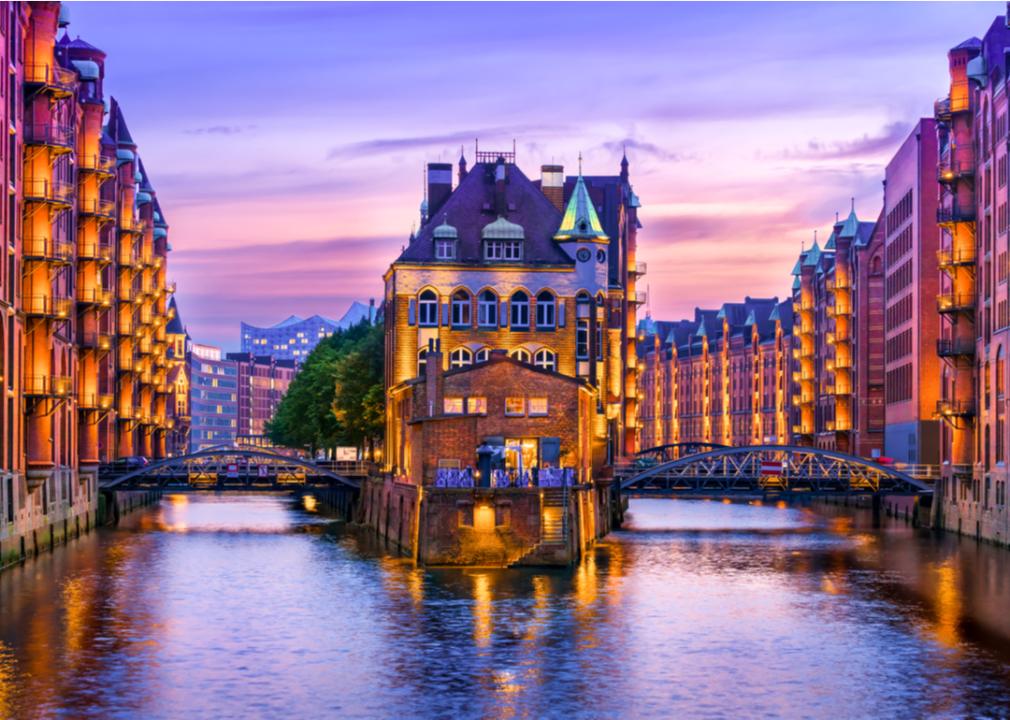
foto-select // Shutterstock
Adolf Hitler: Germany, Malaysia, Mexico, and New Zealand
- Name meaning: The name of the leader of Nazi Germany.
- Reason for ban: It’s offensive.
Several countries have forbidden future children from being named after the genocidal German dictator, but the United States isn’t one of them. Here, where we’re known for lax naming laws, a New Jersey family created controversy in 2008 when they ordered a birthday cake with their 3-year-old son’s name on it: “Adolf Hitler Campbell.”
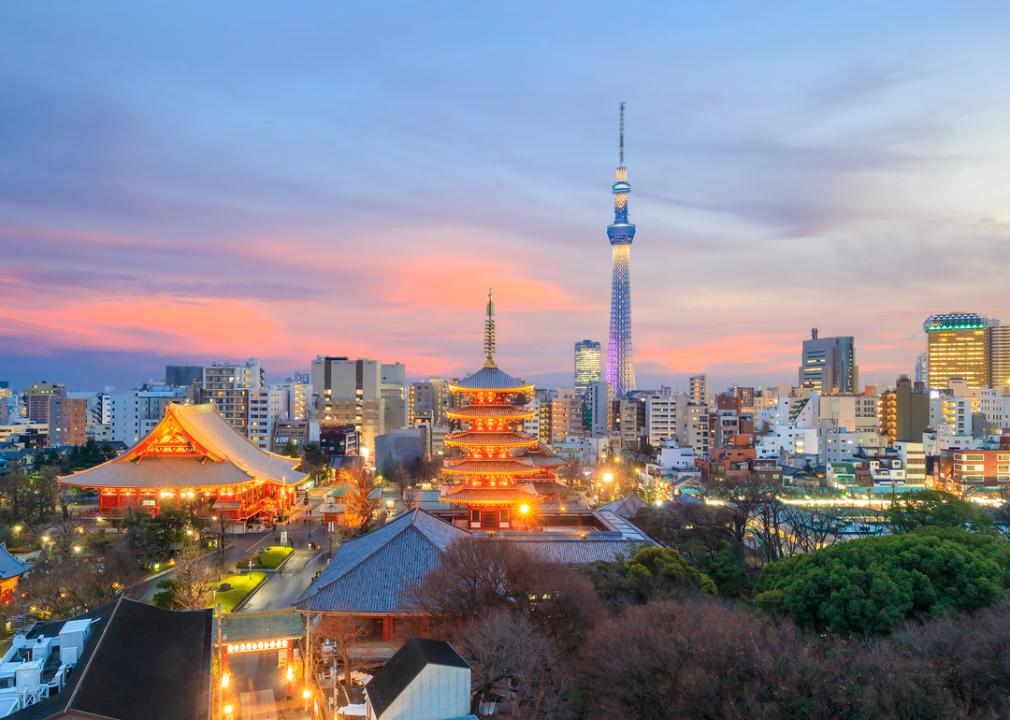
f11photo // Shutterstock
Akuma: Japan
- Name meaning: Devil.
- Reason for ban: Japanese officials sought to protect a child from mockery.
When parents register newborn babies in Japan, they must choose a name written in official Japanese characters, or kanji. While “Akuma” technically fulfills that requirement, the government intervened in 1993 when two parents gave the name to their newborn son.
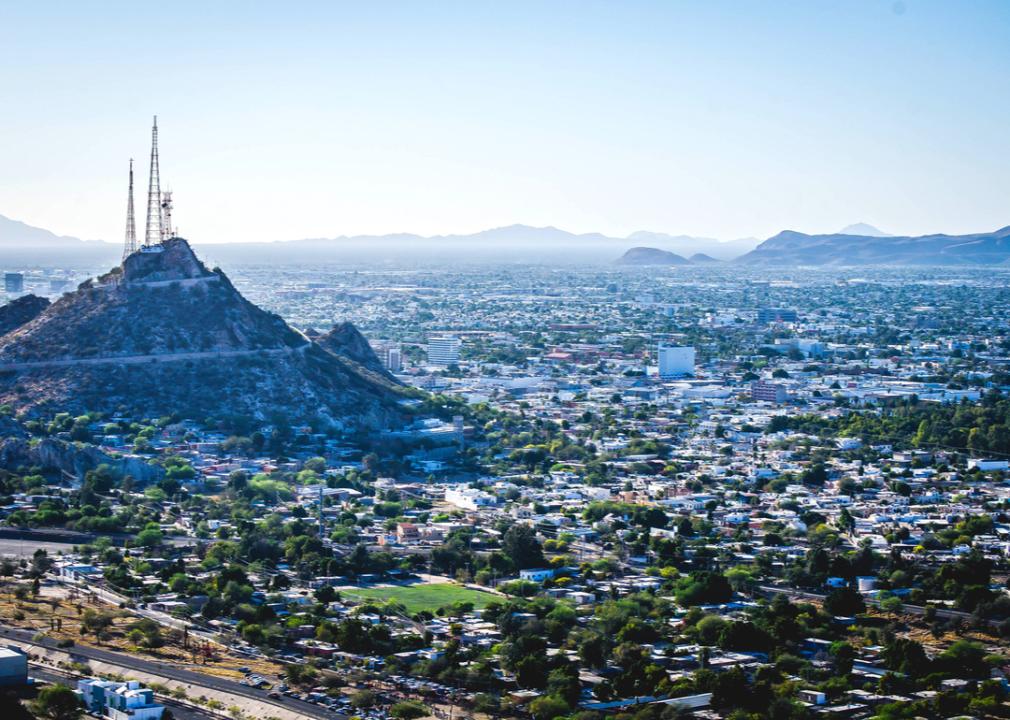
GroupArt // Shutterstock
All Power: Sonora, Mexico
- Name meaning: Presumably, it means “all powerful.”
- Reason for ban: Children can’t have more than two names.
The local government in Sonora, Mexico, prevents children from being registered with names that might be construed as derogatory, pejorative, discriminatory, or devoid of meaning—or that would expose kids to ridicule. We can only imagine the mean rhymes the classmates of little “All Power” would come up with.
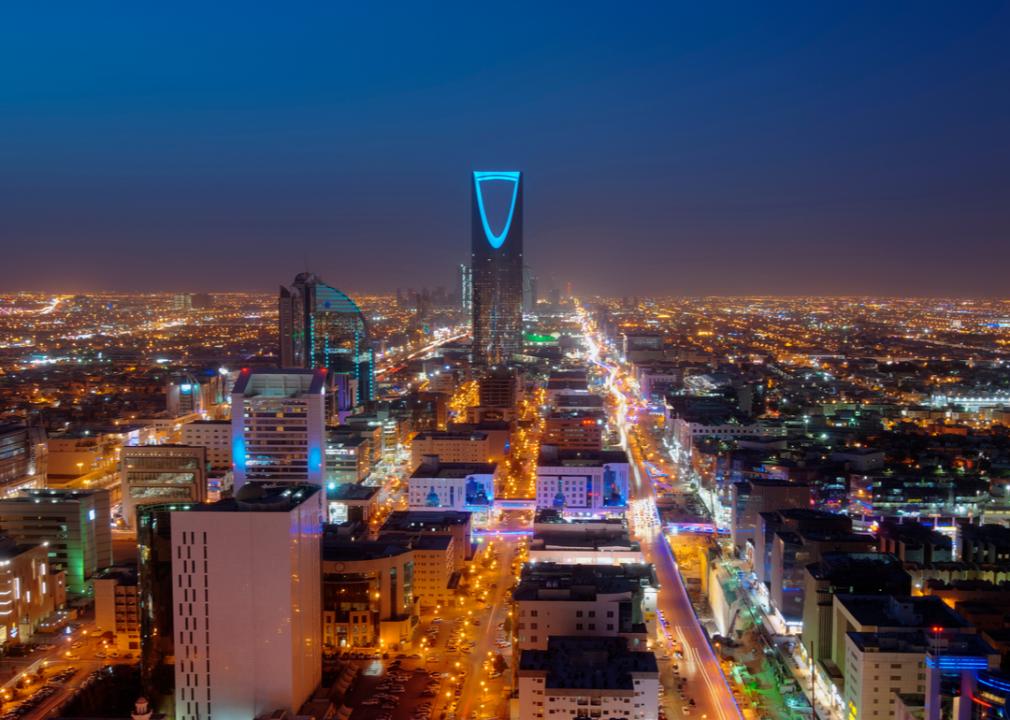
Hany Musallam // Shutterstock
Amir: Saudi Arabia
- Name meaning: Prince.
- Reason for ban: Saudi Arabian citizens cannot name their children anything that relates to royalty.
Parents looking to improve a kid’s social status by naming him or her something aristocratic better not move to Saudi Arabia. Royal terms like Sumuw (highness), Malika (queen), and Al Mamlaka (the kingdom) are all off-limits.
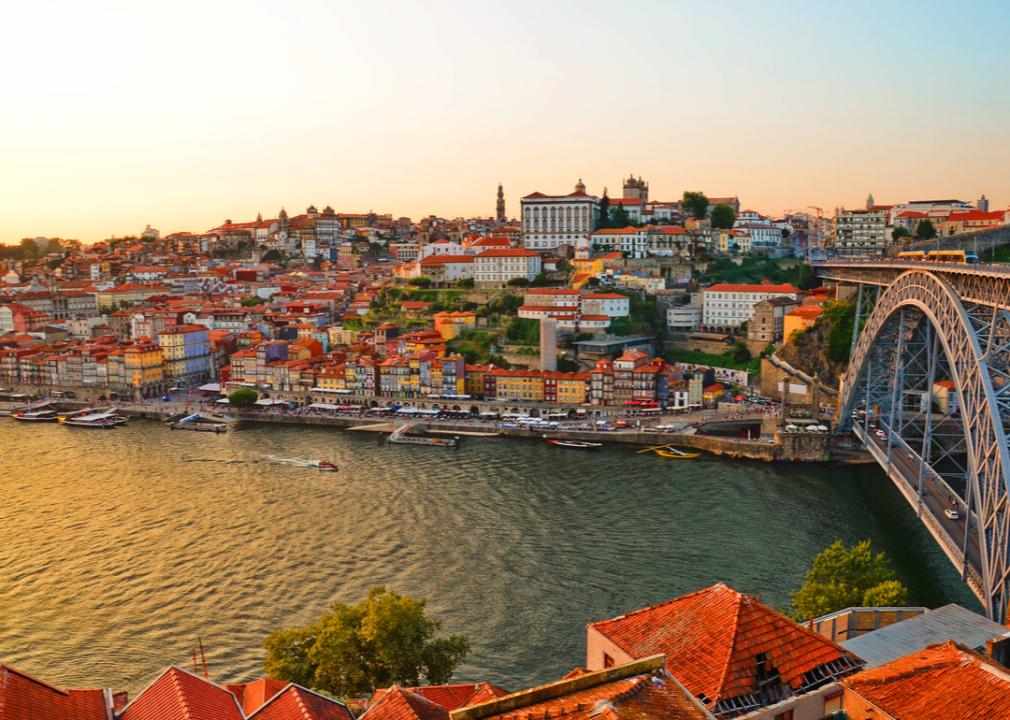
Petr Pohudka // Shutterstock
Ashanti: Portugal
- Name meaning: The name of a tribe of people originally from Ghana.
- Reason for ban: The Portuguese government’s ban on this name doesn’t have anything to do with the early 2000s singer, but with the origin of the name itself. Portugal favors traditionally Portuguese names. Similar to Denmark, parents have to choose from a vetted list.
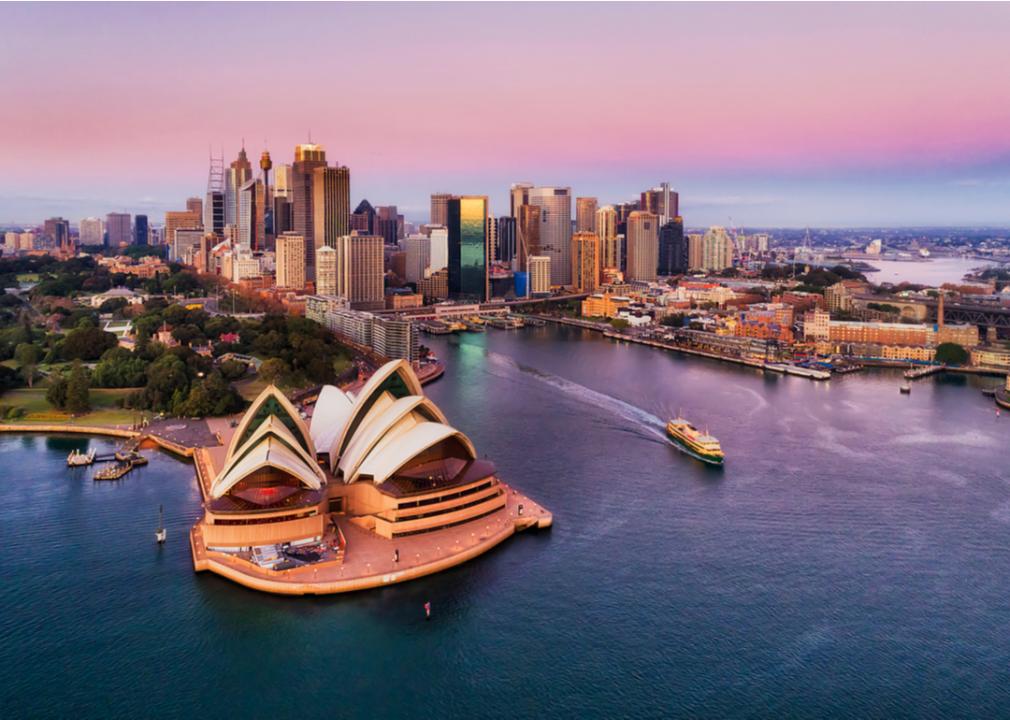
Taras Vyshnya // Shutterstock
Bonghead: Australia
- Name meaning: One can only assume it means someone with a water pipe for a noggin.
- Reason for ban: It’s offensive.
Though the state of Victoria released a list of 46 banned names in 2016, Australia only outlaws 17 especially derogatory ones.
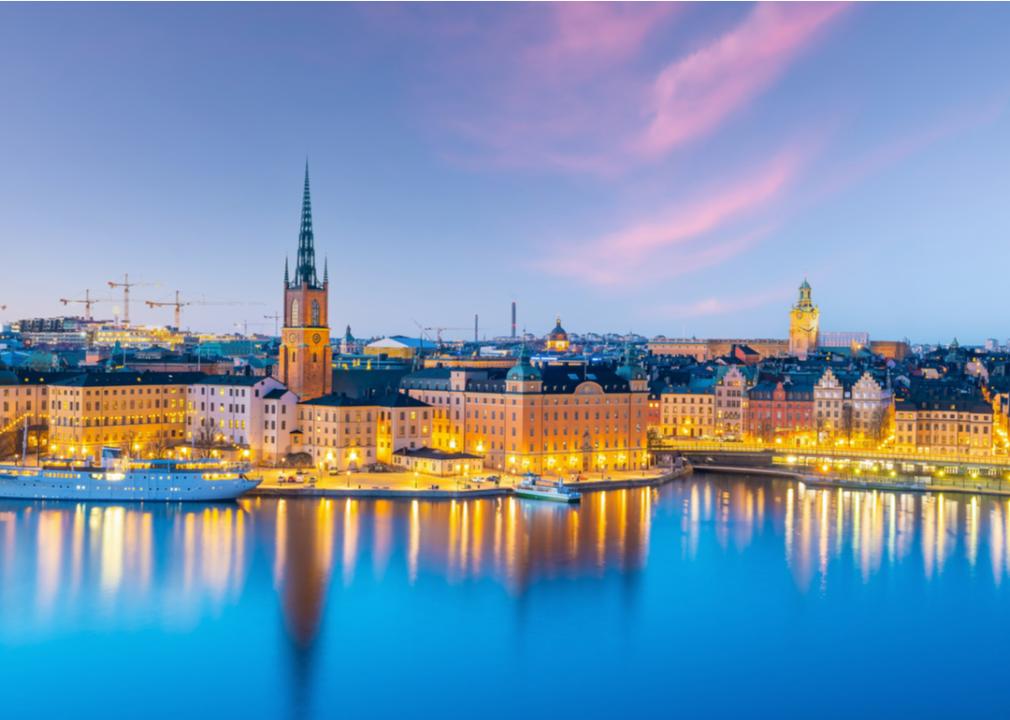
f11photo // Shutterstock
Brfxxccxxmnpcccclllmmnprxvclmnckssqlbb11116: Sweden
- Name meaning: Unclear, but the parents claimed it should be pronounced “Albin.”
- Reason for ban: It isn’t a name.
Swedish naming law states, in part, that “names which for some obvious reason are not suitable as a first name” will not be approved. This 43-character alphanumeric monstrosity of a moniker—which two parents tried to give their son in protest of the country’s naming laws—clearly fits that description.
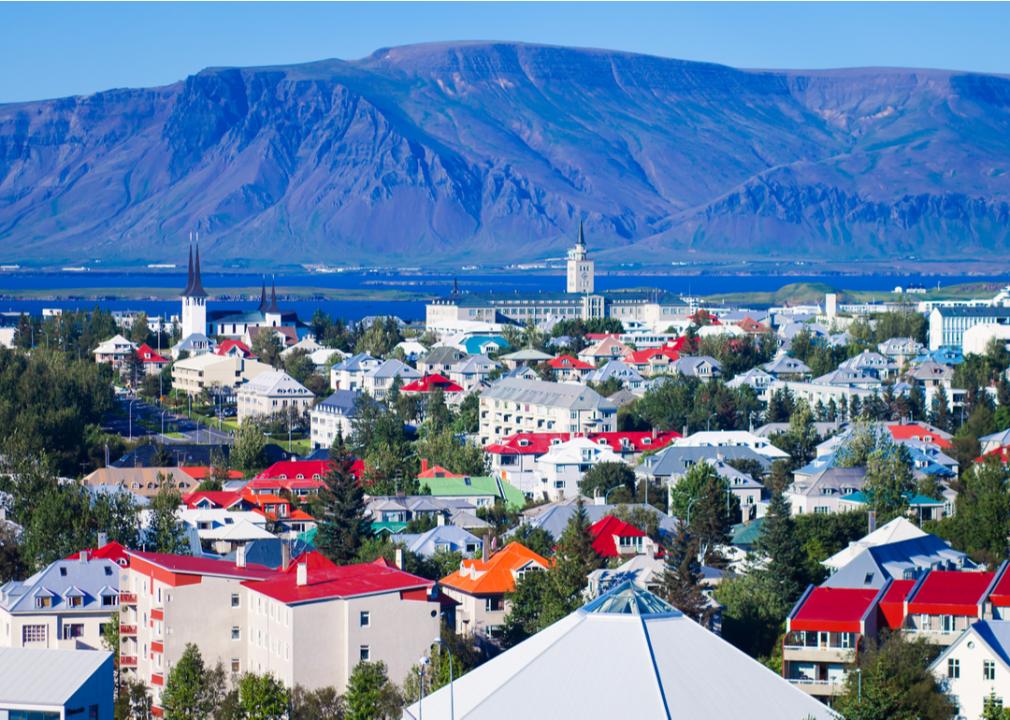
Tsuguliev // Shutterstock
Carolina: Iceland
- Name meaning: A free person.
- Reason for ban: The Icelandic alphabet doesn’t include the letter “c.”
In a very practical move, Iceland doesn’t allow its citizens to give their children names that can’t be written with the Icelandic alphabet or pronounced with proper Icelandic grammar.
You may also like: Major cities with the most accessible public parks
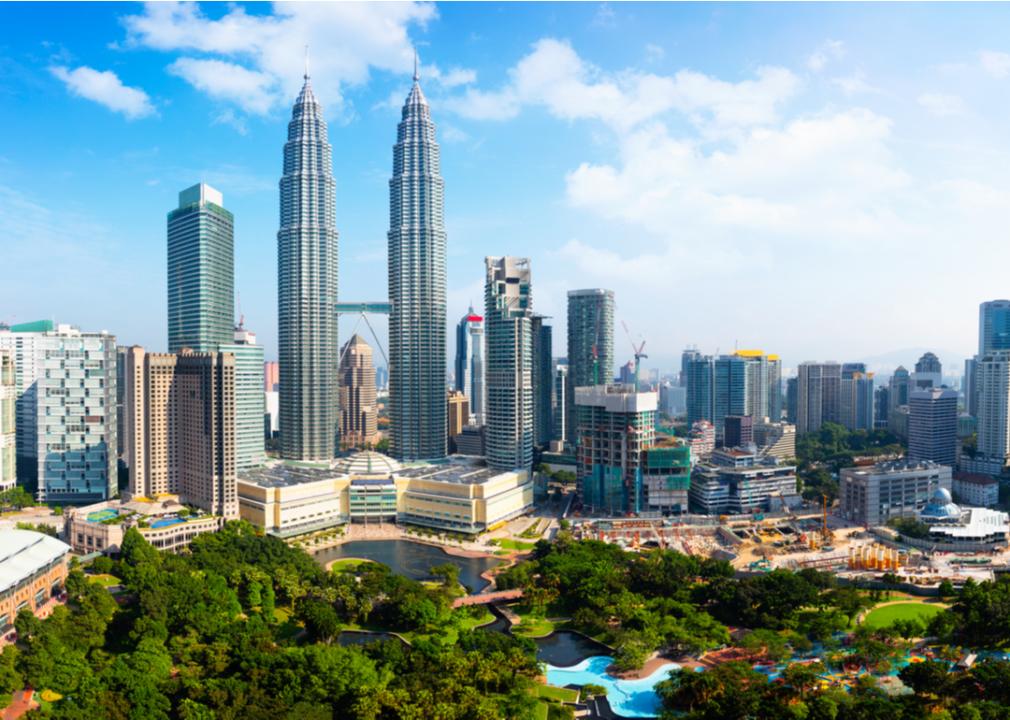
Patrick Foto // Shutterstock
Chow Tow: Malaysia and Victoria, Australia
- Name meaning: Smelly head.
- Reason for ban: The Malaysian government doesn’t allow pejorative words as names.
Chow Tow, which means “smelly head” in Cantonese, is off-limits in Malaysia and parts of nearby Australia. Malaysia also disallows numbers, Japanese car names, and royal titles in monikers.
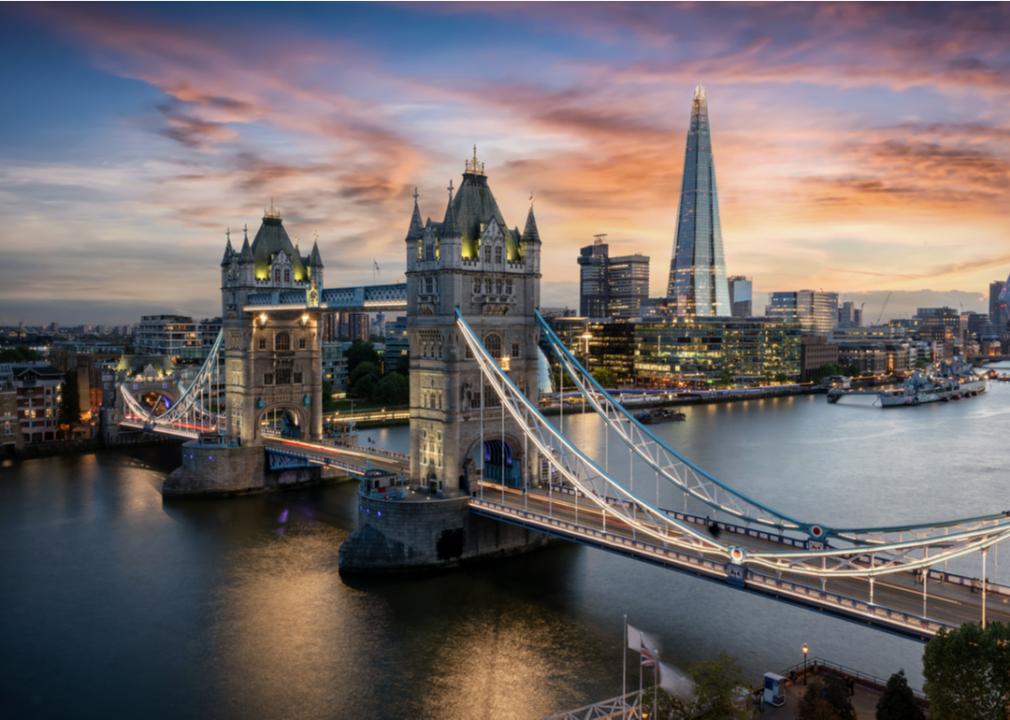
Sven Hansche // Shutterstock
Cyanide: United Kingdom
- Name meaning: A deadly poison.
- Reason for ban: The moniker might bring harm to the child in the future.
A U.K. court intervened after a British woman named her twins “Cyanide” and “Preacher.” The determination was that neither name would be appropriate for a child, and specifically stated the name “Cyanide” could be interpreted as a rejection of the girl by her mother.
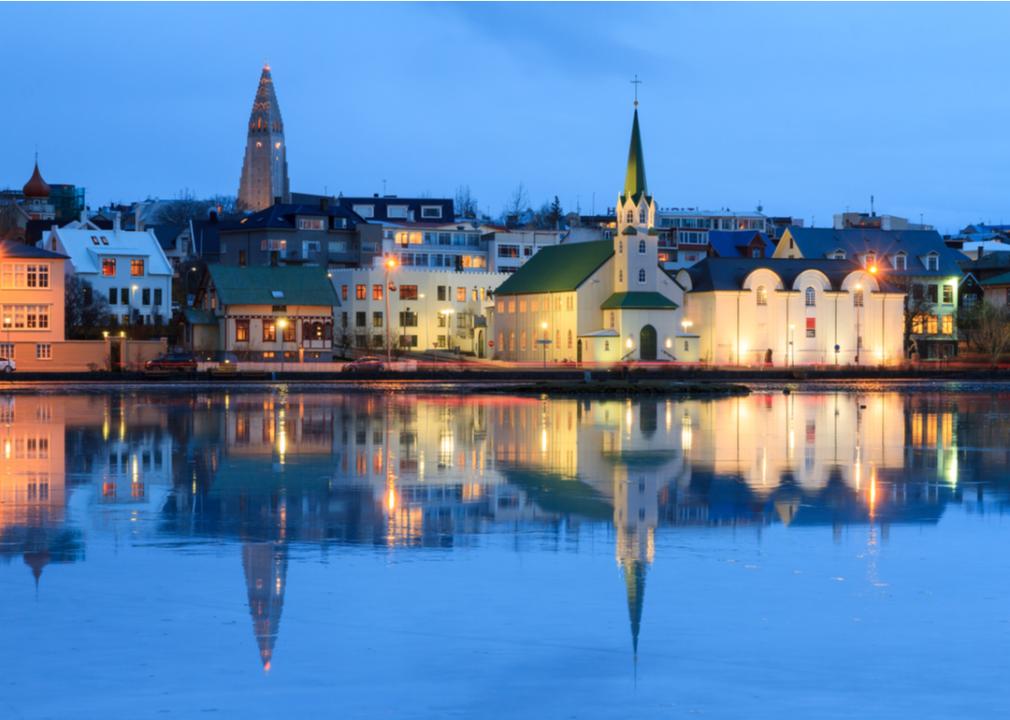
Dennis van de Water // Shutterstock
Enrique: Iceland
- Name meaning: The Spanish form of Heinrich, Germanic for “powerful ruler of the home.”
- Reason for ban: Foreign names are generally not allowed in Iceland.
Like “Carolina,” this name can’t be assigned to a person in Iceland because “Enrique” can’t be pronounced using traditional Icelandic grammar.
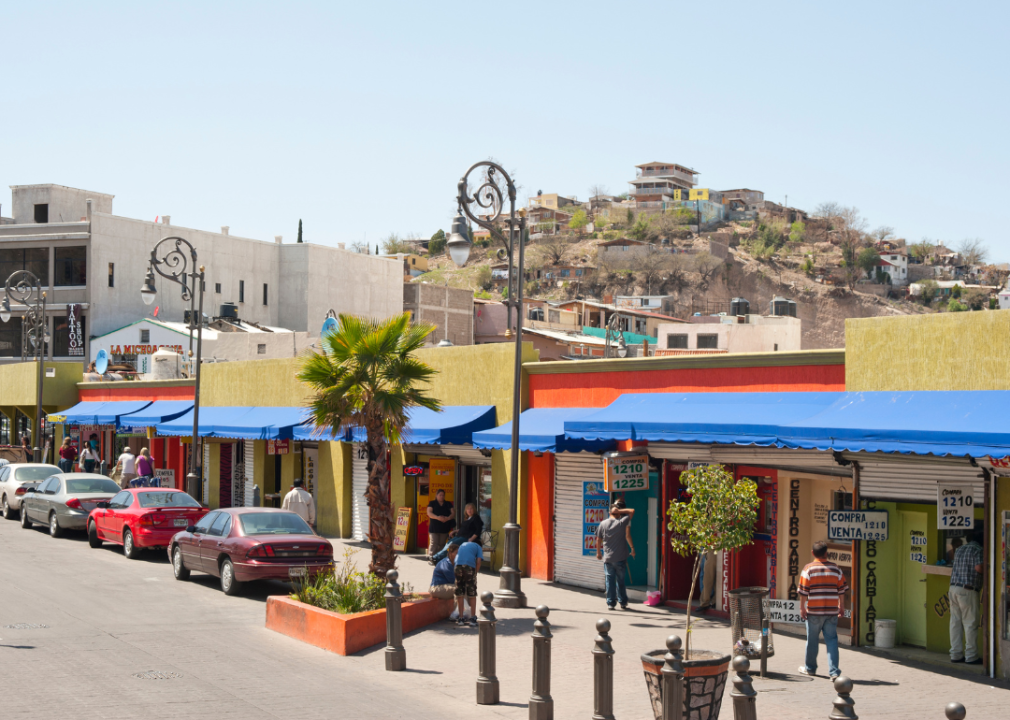
Canva
Facebook: Sonora, Mexico
- Name meaning: The social media platform and website.
- Reason for ban: The Mexican state prohibits names “lacking in meaning.”
Sadly, your obsession with viral videos doesn’t give you license to name your child “Facebook”—at least, not in Sonora, Mexico. The state prohibits names devoid of meaning (no matter how meaningful one may personally find the social networking site), those which might adversely affect a child later in life, and those that could be construed as derogatory.
You may also like: Pets banned in every state
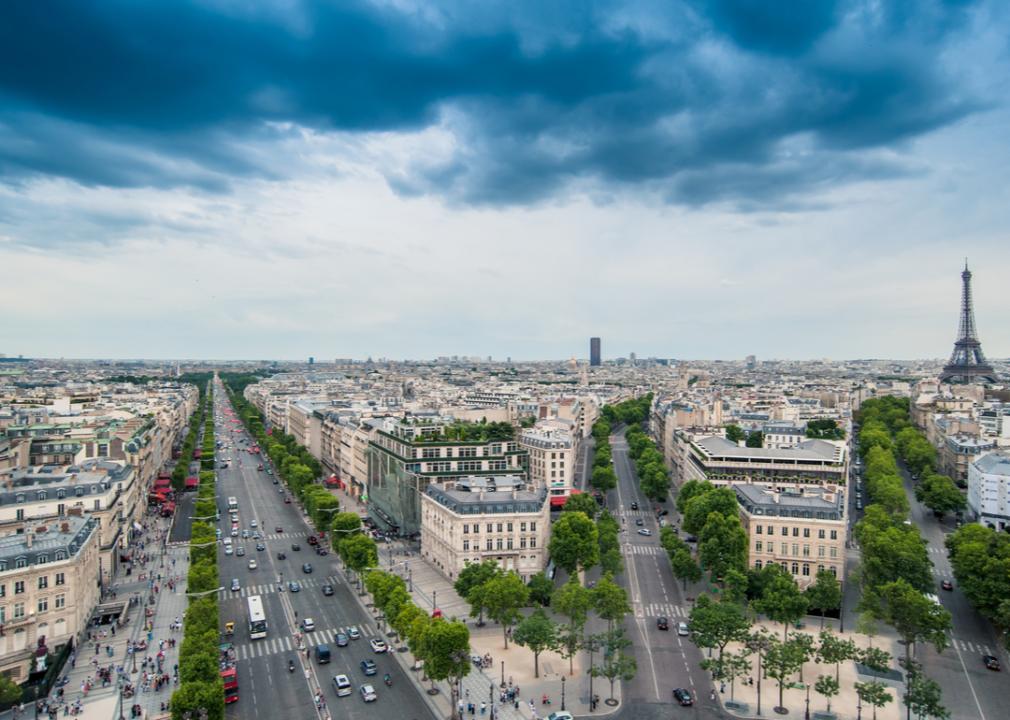
Artur Jakucewicz // Shutterstock
Fraise: France
- Name meaning: Strawberry.
- Reason for ban: It’s embarrassing and too similar to a slang term.
Though French parents have the leeway to name their kids anything they like, local prosecutors can report questionable names to the higher court. A judge in 2015 ruled that the name “Fraise” was too similar to “ramène ta fraise,” which loosely translates to “get your butt over here.” The name, the court determined, was therefore inappropriate.
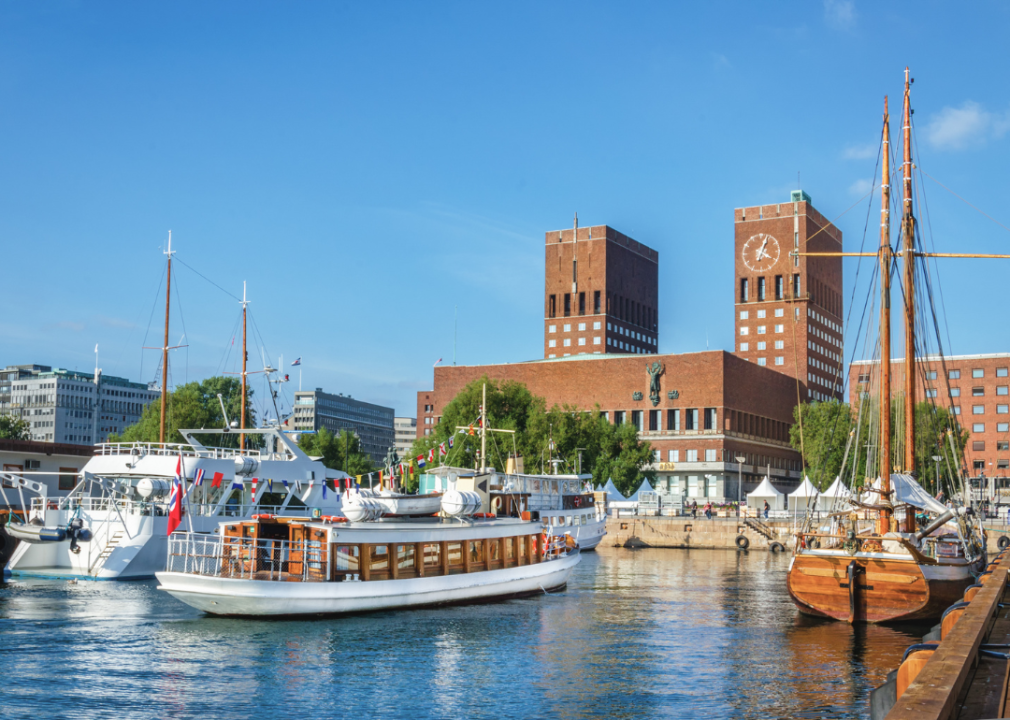
Canva
Gesher: Norway
- Name meaning: Bridge.
- Reason for ban: It’s not on the Norwegian government’s list of approved names.
Kirsti Larsen said the name “Gesher”—the Hebrew word for “bridge”—came to her in a dream. But since it wasn’t included on the official government list of approved names, she was asked to change it or pay a fine of 1,600 kroner. Larsen refused and ended up serving two days in jail.
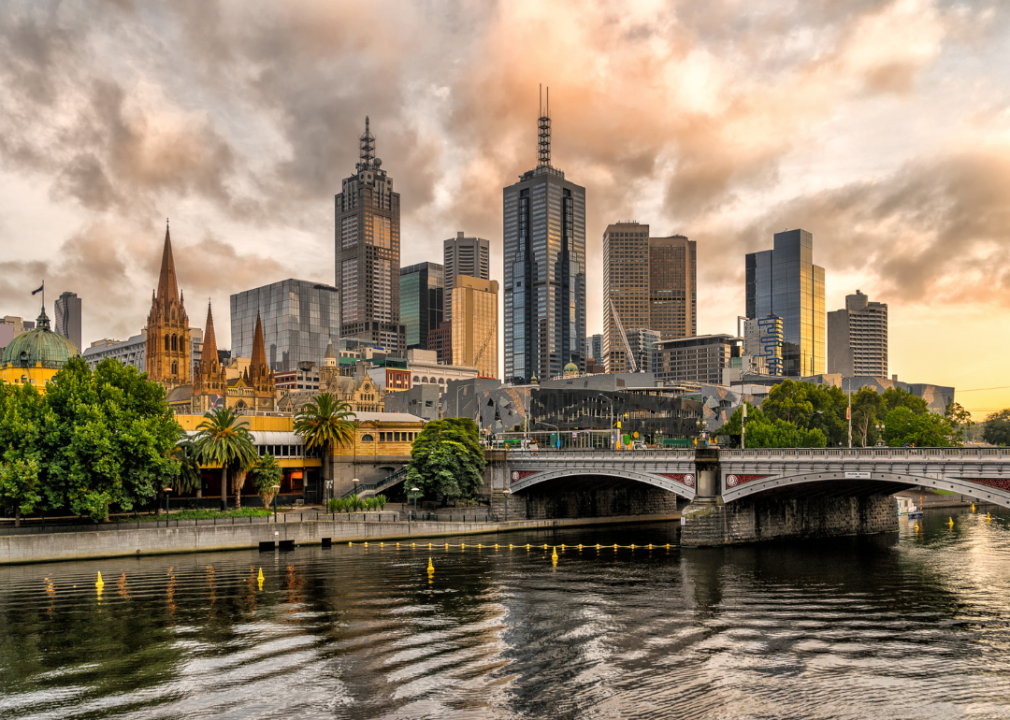
Canva
God: Victoria, Australia
- Name meaning: An all-powerful being.
- Reason for ban: Several names explicitly tied to religion are banned.
The Australian state doesn’t allow parents to give their children any religious monikers. That includes names like “Jesus” and “Bishop.”
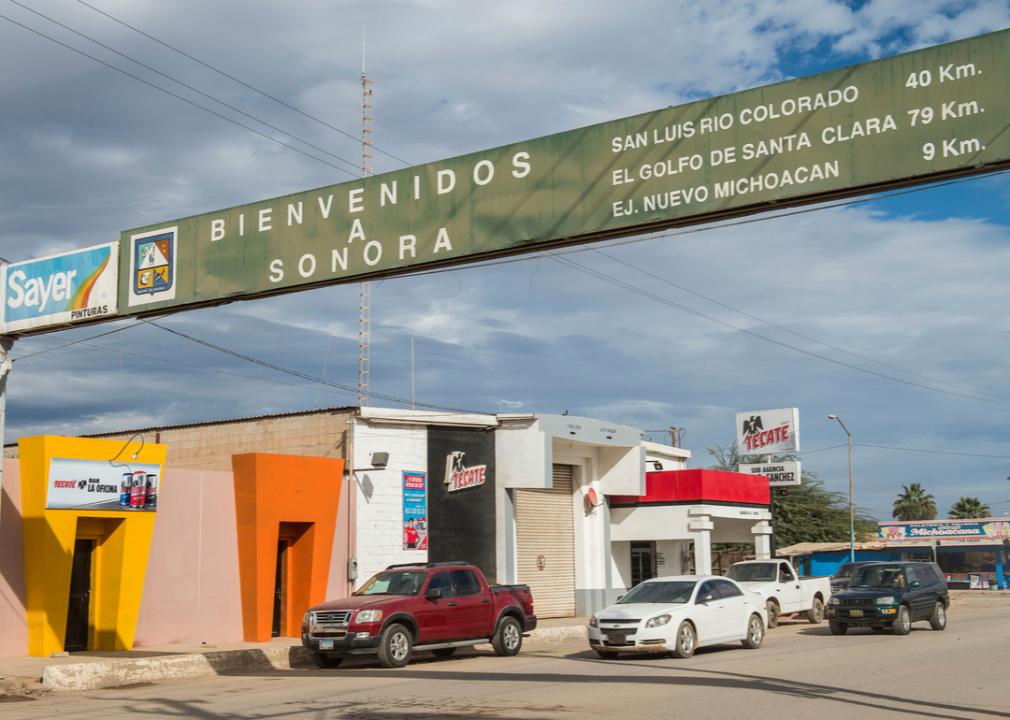
VG Foto // Shutterstock
Harry Potter: Sonora, Mexico
- Name meaning: “Harry” comes from the German “Heri,” or “army,” but the name is more closely attributed to the fictional wizard and namesake of J.K. Rowling’s fantasy novels.
- Reason for ban: It could cause embarrassment and bullying.
While many people may adore J.K. Rowling’s boy wizard, the Sonoran government doesn’t think any kid should have to grow up in Harry Potter’s shadow.
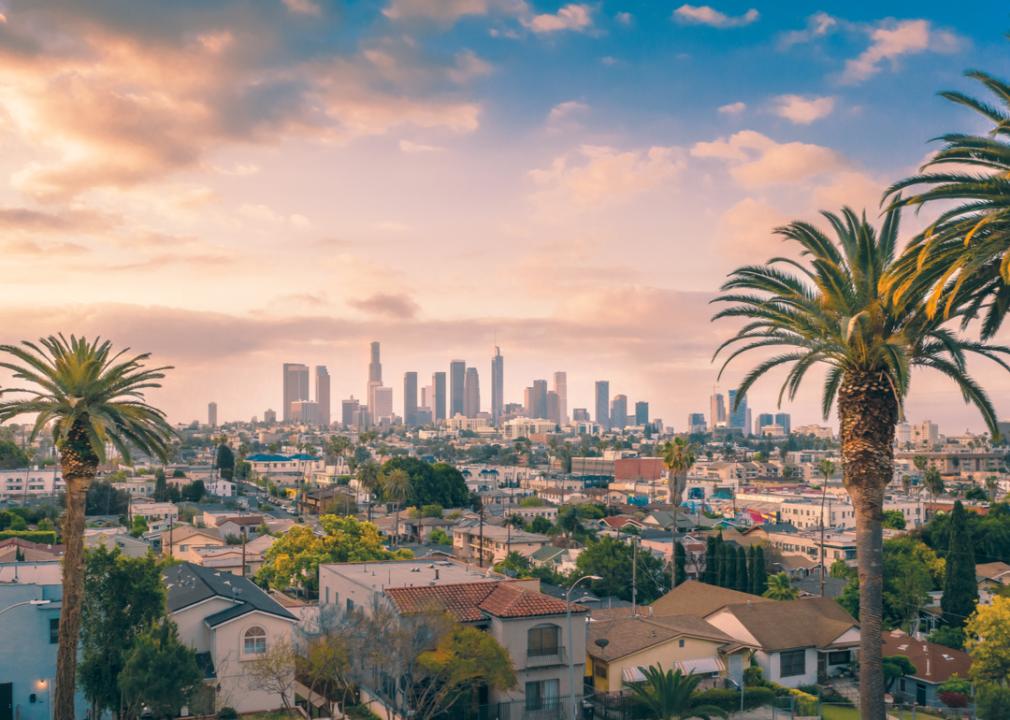
Marek Masik // Shutterstock
III: California, United States
- Name meaning: Three, or the third.
- Reason for ban: It’s inherently confusing.
Thomas Boyd Ritchie III tried to change his name to the Roman numeral “III” in California, saying he already uses it as a nickname with friends and acquaintances. The court disagreed, however, stating symbols or numbers alone don’t constitute a name—and that Californians must have a first and last name.
You may also like: 10 toxic cleaning products and their natural alternatives
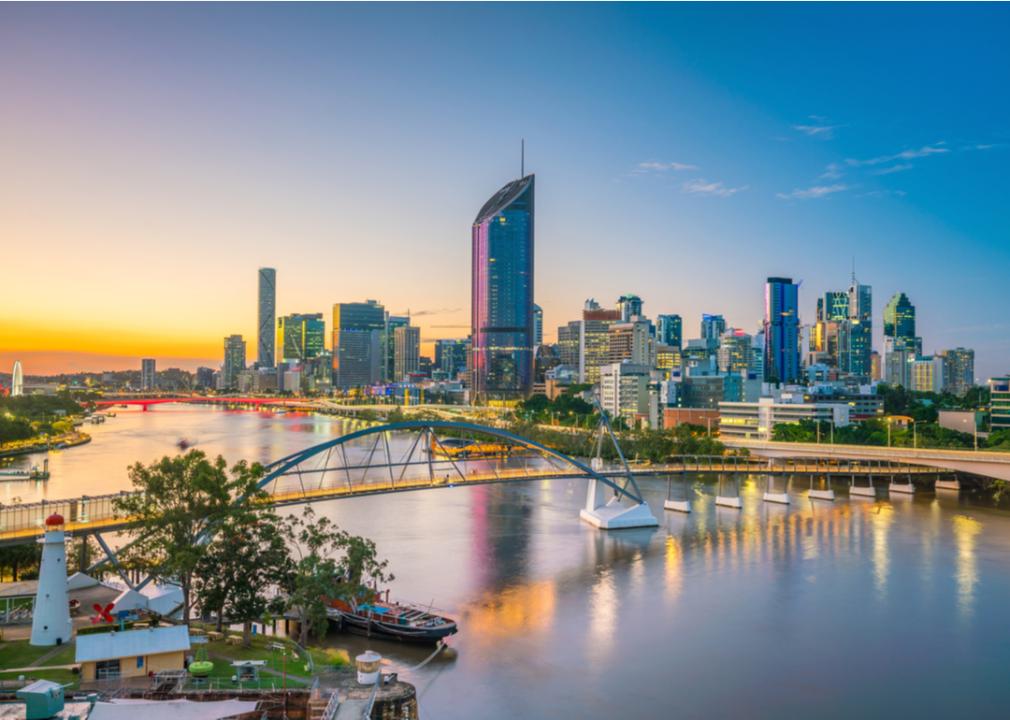
f11photo // Shutterstock
Ikea: Australia
- Name meaning: A chain of Swedish furniture superstores.
- Reason for ban: It’s not appropriate for a child’s name.
For starters, the multinational furniture company has a trademark on its name. The moniker also flies in the face of the Australian government’s policy to not allow name assignments that aren’t in a child’s (or the public’s) best interest.
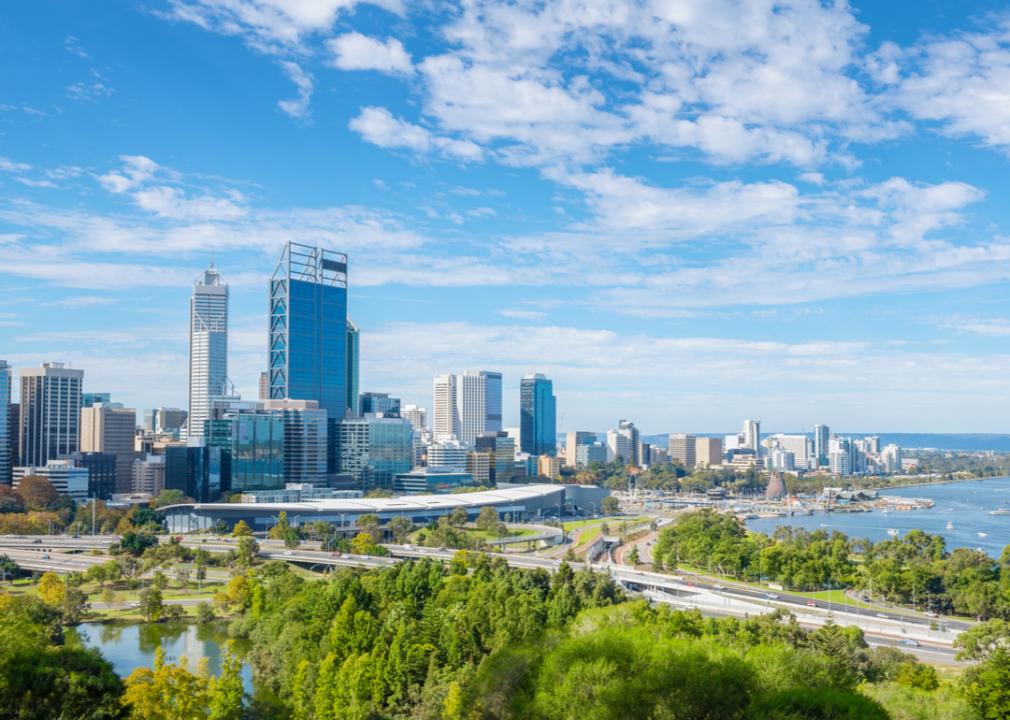
Lev Kropotov // Shutterstock
iMac: Australia
- Name meaning: A desktop computer produced by Apple.
- Reason for ban: It’s an object, not a person’s name.
Naming a child after a popular computer—no matter how high-quality—doesn’t exactly show the world how much you love and care for your son or daughter.
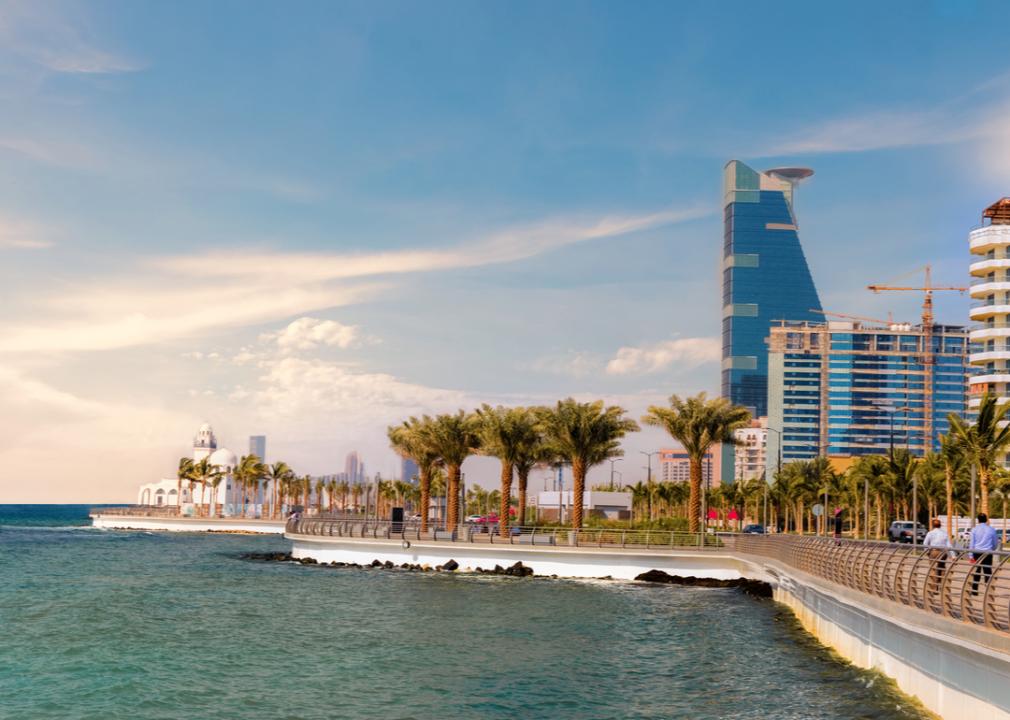
Osama Ahmed Mansour // Shutterstock
Linda: Saudi Arabia
- Name meaning: Soft, tender; beautiful.
- Reason for ban: It’s foreign.
The Saudi Arabian government actually takes issue with several Western girls’ names. These include other seemingly benign names such as “Alice” and “Elaine.”
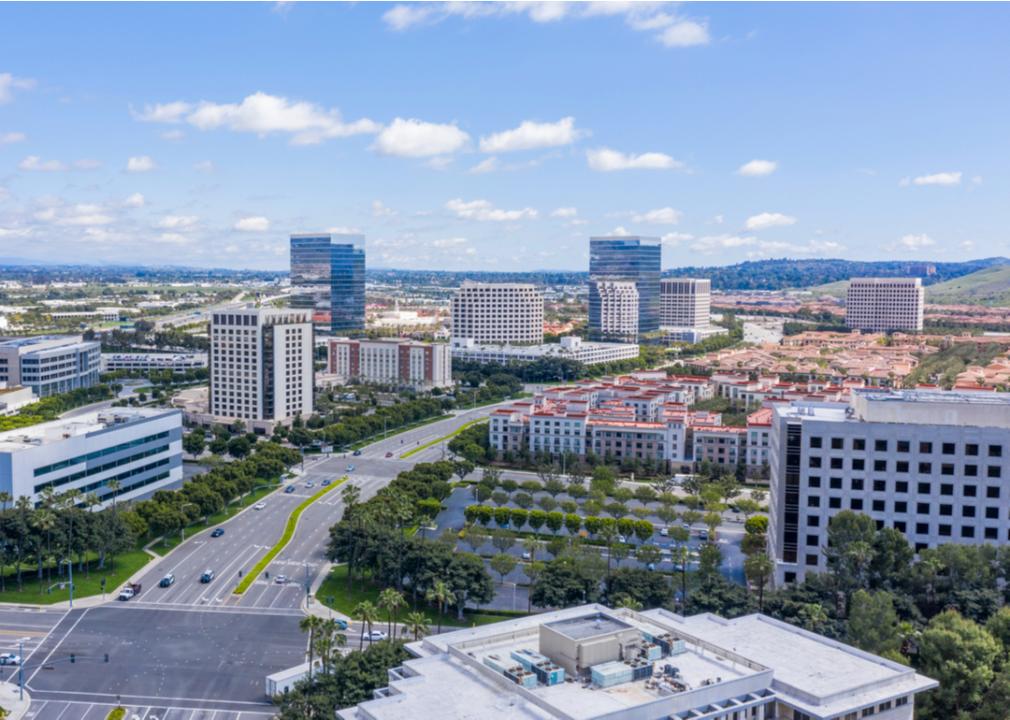
Matt Gush // Shutterstock
Lucía: California, United States
- Name meaning: Graceful light.
- Reason for ban: Accents and special characters aren’t permitted in California.
California only allows names written using the 26 letters of the English alphabet. That means no special characters, numbers, or accents.
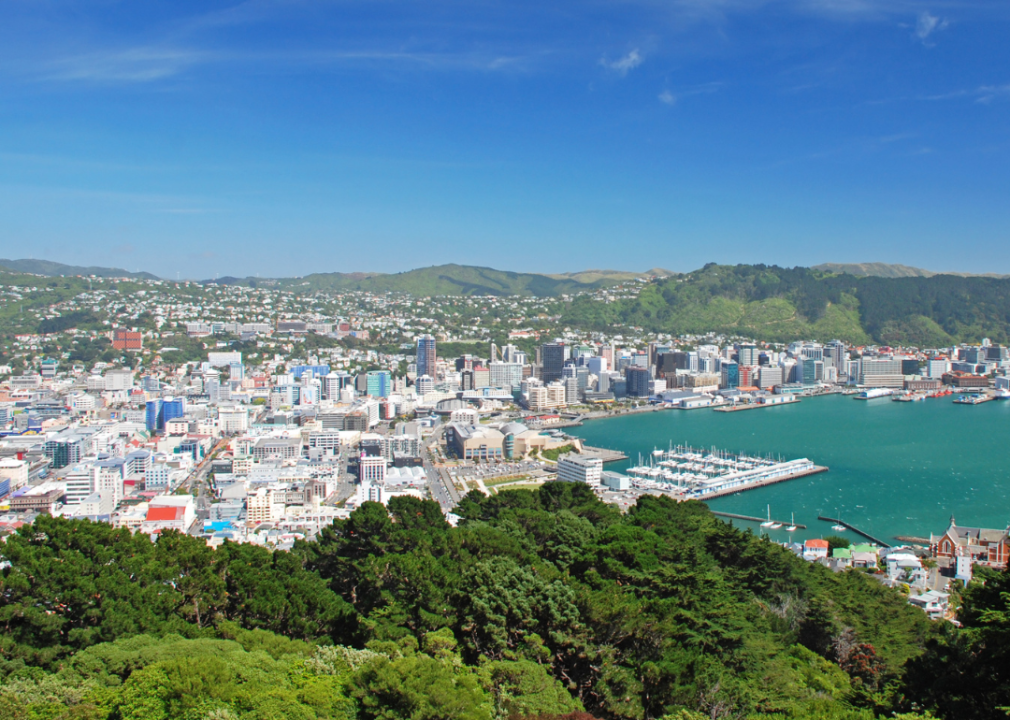
Canva
Lucifer: New Zealand
- Name meaning: The devil.
- Reason for ban: It’s derogatory.
From 2001 to 2013, six sets of New Zealand parents attempted to name their children “Lucifer.” Luckily for the newborns, the New Zealand Registrar of Births, Deaths and Marriages has to approve all names. This devilish one didn’t make the cut.
You may also like: Stunning images of farming around the world
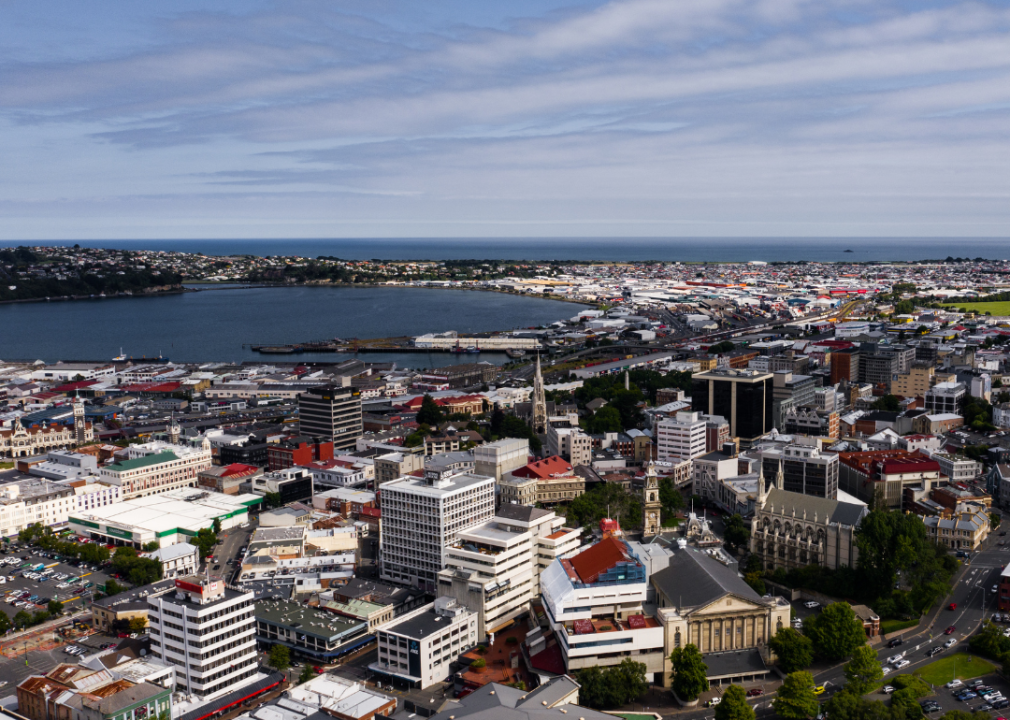
Canva
Mafia No Fear: New Zealand
- Name meaning: Unknown.
- Reason for ban: It’s inappropriate.
Each year, New Zealand officials have to turn down a bevy of unusual name requests by parents. Since 2001, the monikers most commonly shot down are “Justice” and “King.” “Mafia No Fear” was requested just once.
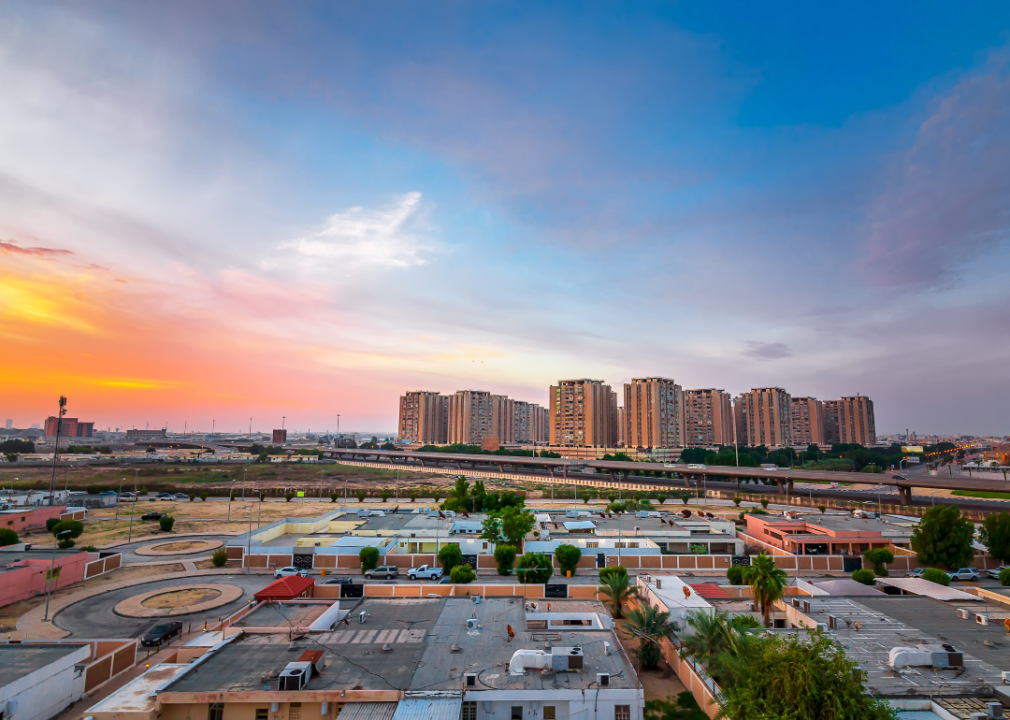
Canva
Malek: Saudi Arabia
- Name meaning: King.
- Reason for ban: This title is reserved solely for royalty.
As a monarchy, Saudi Arabia bans the use of all kinds of regal names by commoners. And don’t even think about “Malika”—the word for “queen.”
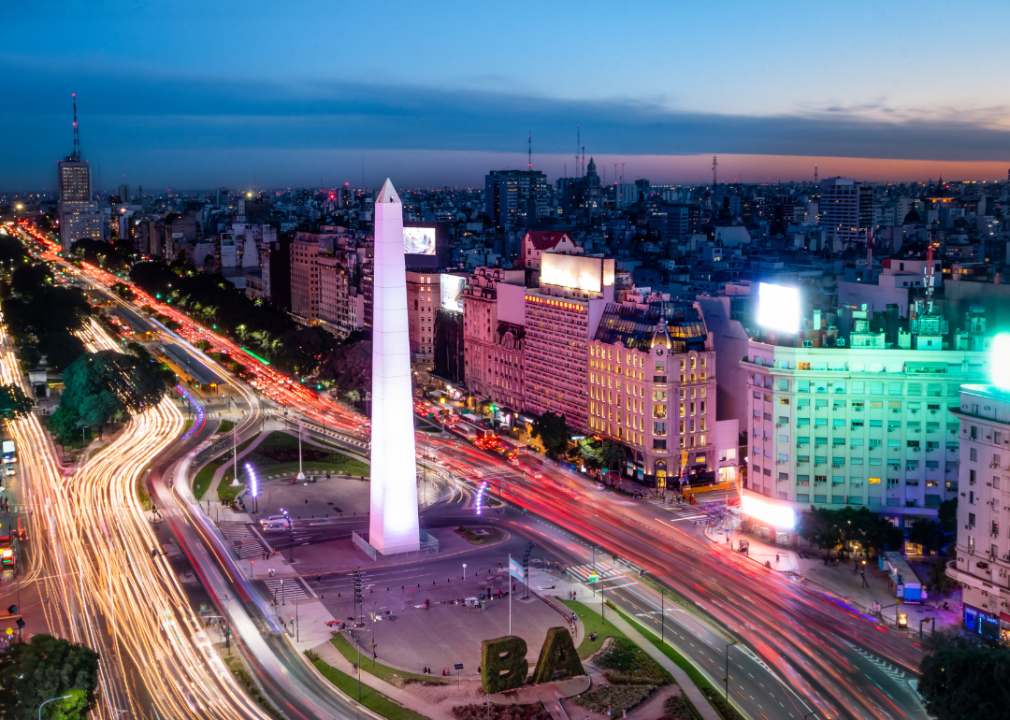
Canva
Messi: Rosario, Argentina
- Name meaning: The last name of legendary soccer player Lionel Messi.
- Reason for ban: Last names can’t be used as first names.
Soccer fans in Lionel Messi’s hometown seeking to pay tribute to their sports hero by naming infants after him are out of luck—at least, if they want to use the last name “Messi” as a child’s first name. The town specifically outlawed the moniker due to such a large volume of parents assigning the name to their children. “Lionel,” however, is still fair game!
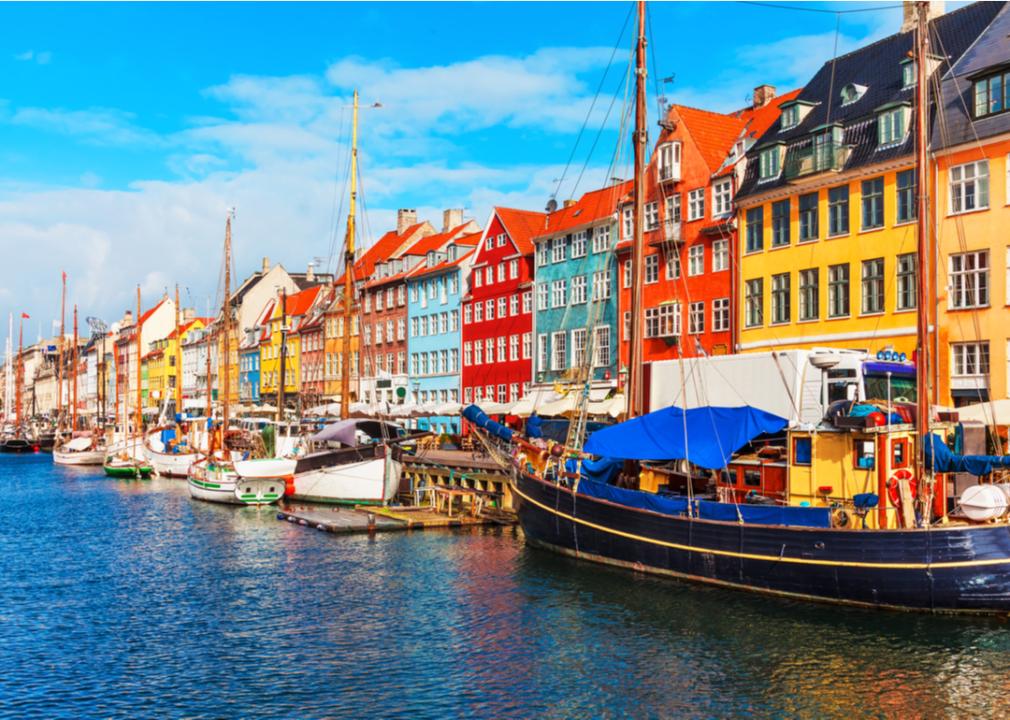
Oleksiy Mark // Shutterstock
Monkey: Denmark
- Name meaning: A primate.
- Reason for ban: It’s inappropriate and could lead to bullying.
Naming a human being after an animal—even one we’re distantly related to—doesn’t exactly have positive connotations. The moniker is not part of Denmark’s approved list of thousands of names for parents to choose from.
You may also like: Iconic products released the year you were born
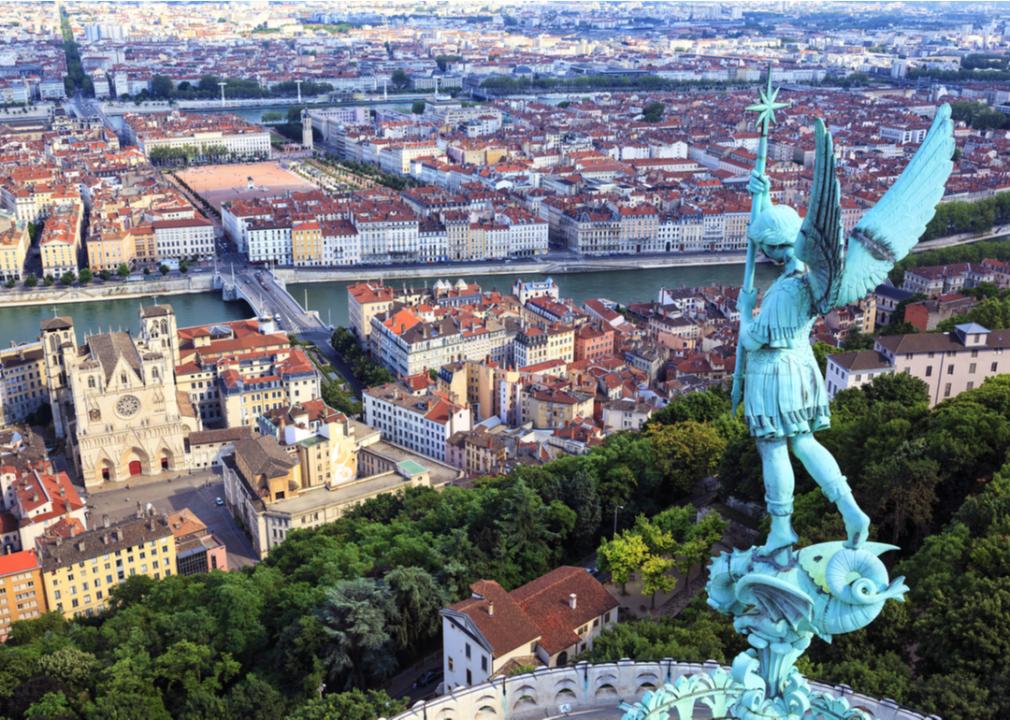
prochasson frederic // Shutterstock
Nutella: France
- Name meaning: A popular chocolate-hazelnut spread.
- Reason for ban: It’s too similar to a well-known food.
A French court ruled that sharing a name with a breakfast food commonly found on European breakfast tables was “contrary to the child’s interest.” The child was renamed Ella.
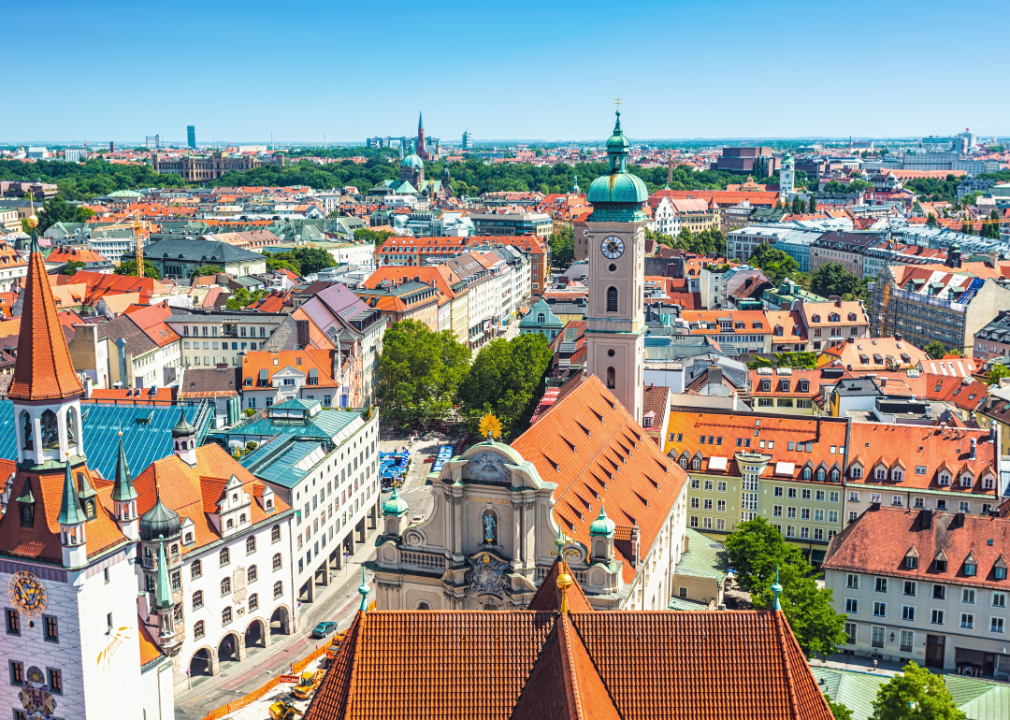
Canva
Osama bin Laden: Germany
- Name meaning: The name of the former leader of al-Qaeda.
- Reason for ban: It’s offensive.
Germany stopped a Turkish couple from naming their child after the al-Qaeda leader, noting the family’s home country wouldn’t allow the name, either.
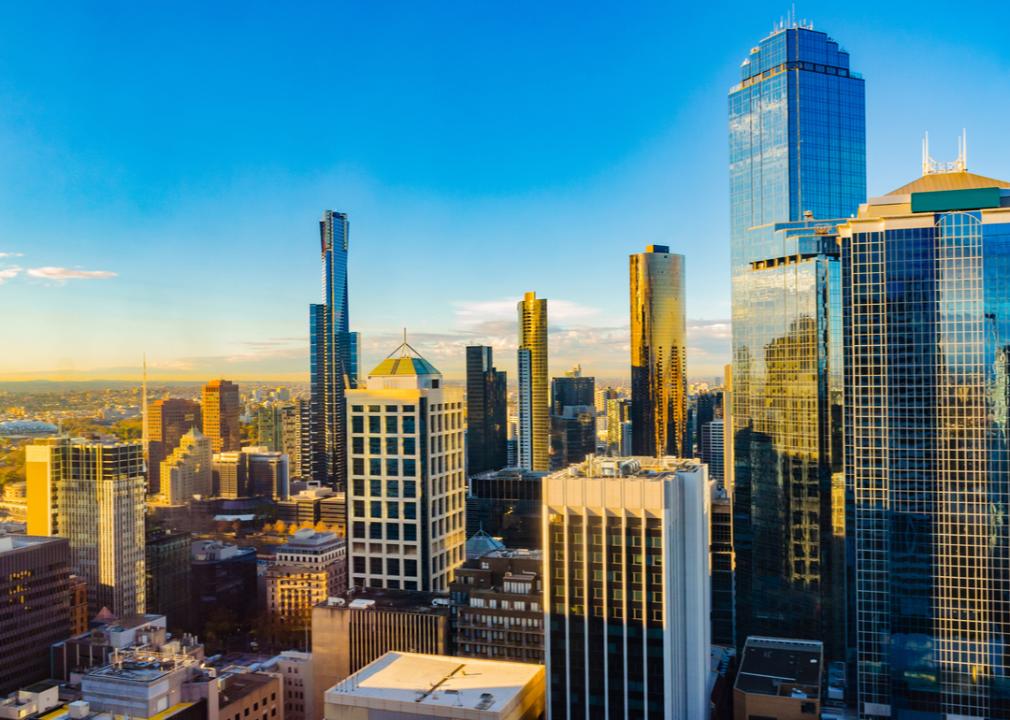
AMPG // Shutterstock
Prime Minister: Victoria, Australia
- Name meaning: The elected head of a government.
- Reason for ban: It’s confusing.
Much as you might admire your country’s head of state, it’s probably not a good idea to give the title to your first-born.
You may also like: Least obedient dog breeds
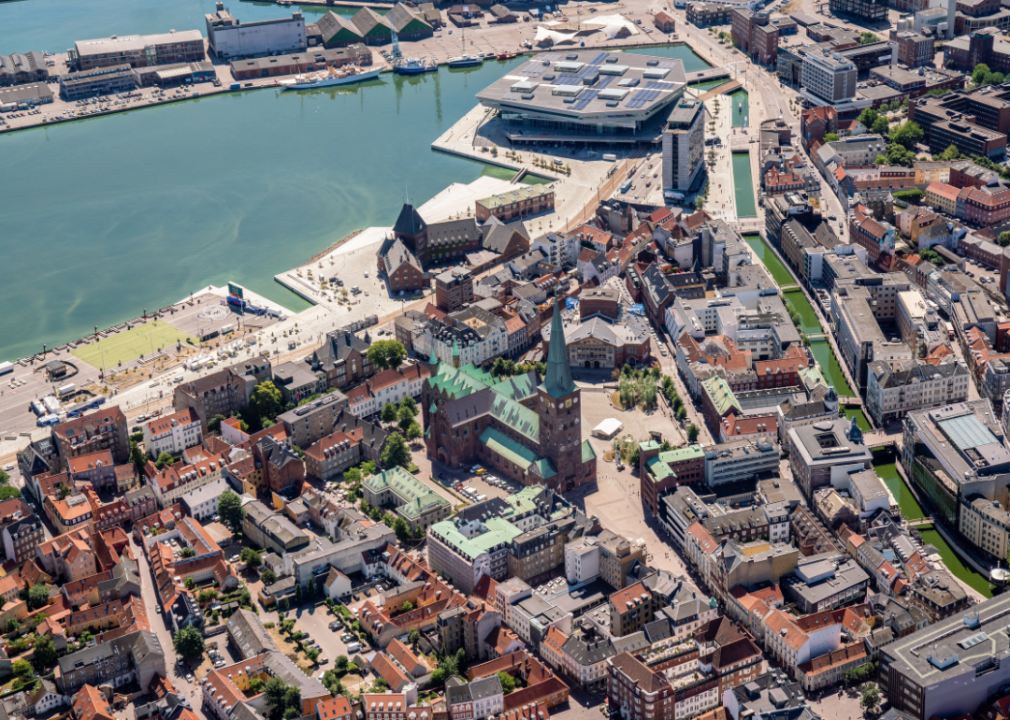
Canva
Pluto: Denmark
- Name meaning: Possibly the best-known dwarf planet in the universe.
- Reason for ban: It’s inappropriate.
Sorry, science geeks: Denmark’s Law on Personal Names still doesn’t permit the name “Pluto.” The law holds, even after 2006 when Pluto was demoted to “dwarf planet” status.
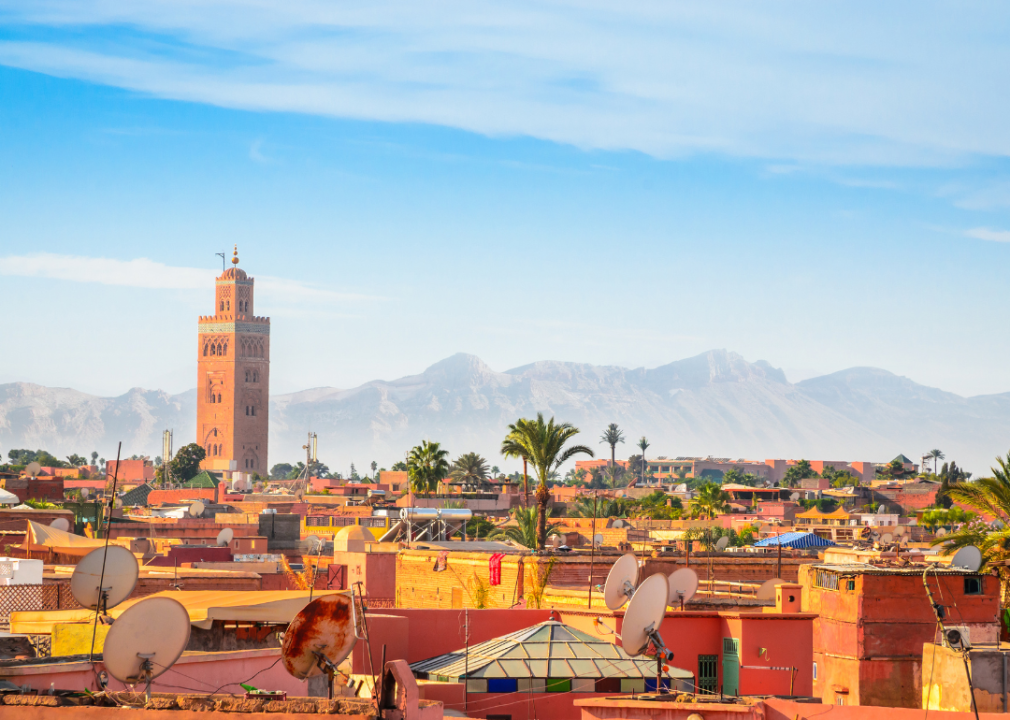
Canva
Sarah: Morocco
- Name meaning: Pure, happy; princess.
- Reason for ban: It’s not traditionally Moroccan.
Moroccan parents must choose baby names from a government-approved list that fit the “Moroccan identity.” The Hebrew name “Sarah” did not make the cut.
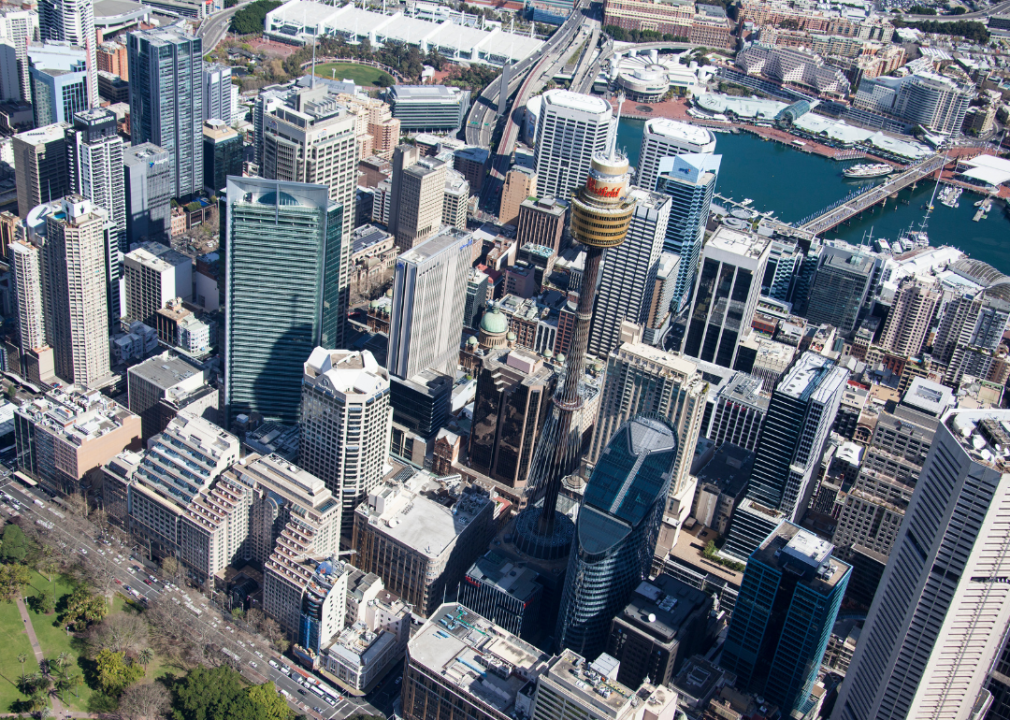
Canva
Smelly: Australia
- Name meaning: Someone who stinks.
- Reason for ban: It’s derogatory.
Now that’s just mean. Australian officials thankfully kept at least one child from unwittingly being forced into a lifetime of mockery.
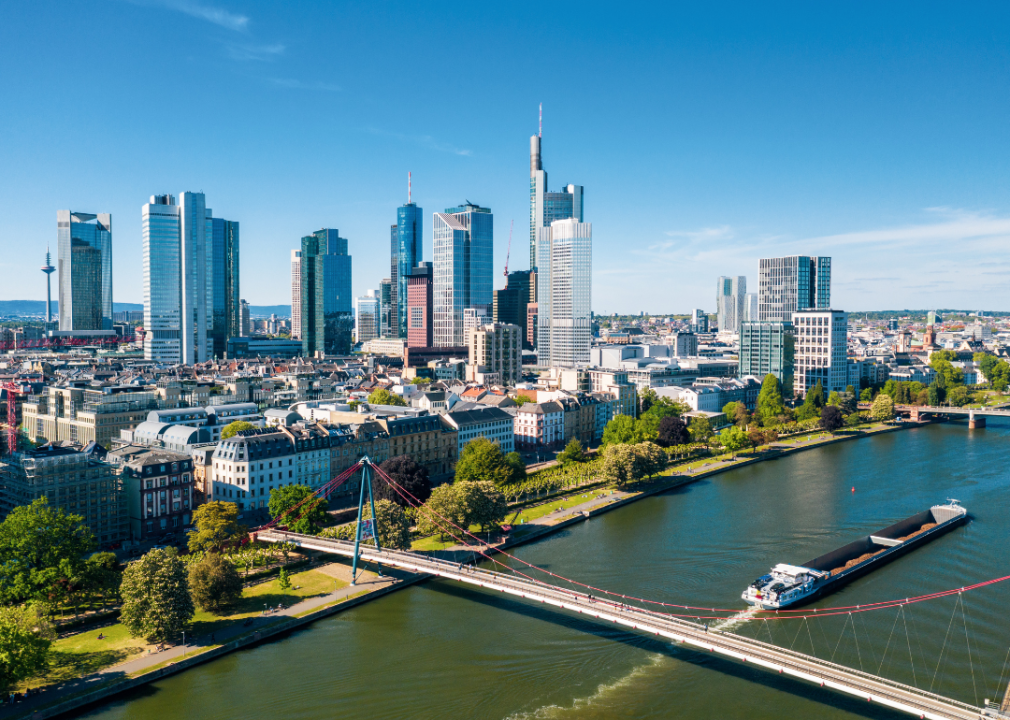
Canva
Stompie: Germany
- Name meaning: A short man; also the name of a murdered South African teen activist.
- Reason for ban: It might lead to bullying or ridicule.
Whether the parents wanted to pay a tribute to the young anti-apartheid figure Stompie Moeketsi or just thought the name was cute, German officials rejected the name “Stompie” to prevent the child from being teased.
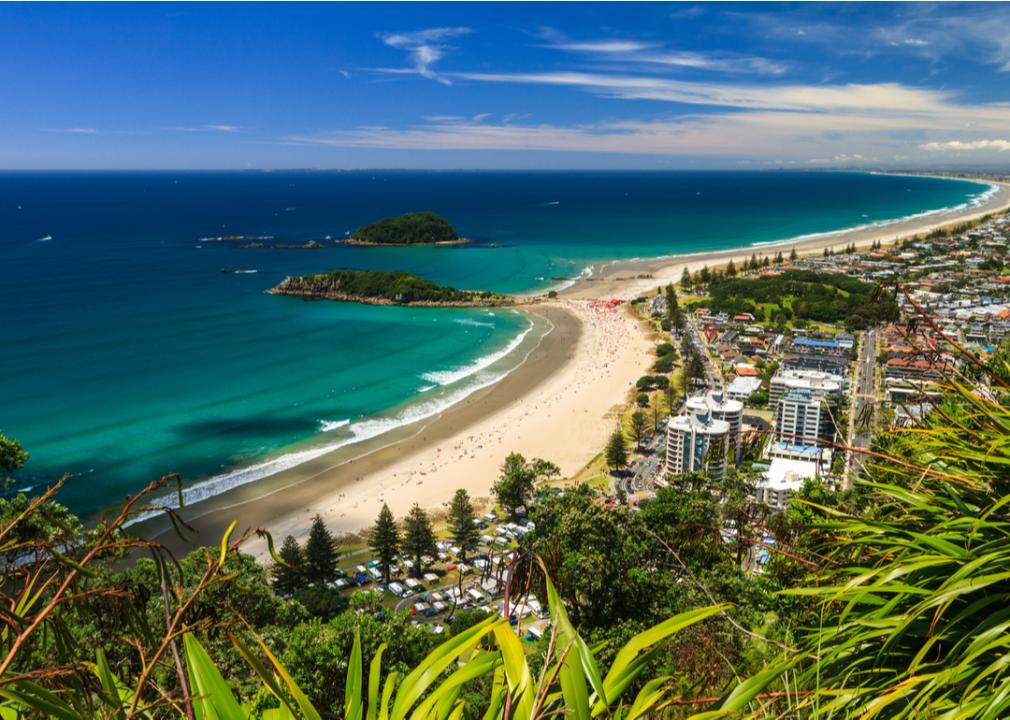
DmitrySerbin // Shutterstock
Talula Does the Hula From Hawaii: New Zealand
- Name meaning: Irish pop band in the mid-2000s.
- Reason for ban: It exposes the child to ridicule.
After her parents named her “Talula Does the Hula From Hawaii,” the child eventually began introducing herself to friends as simply “K.” She suffered so much embarrassment and teasing that a family court judge actually put her into court guardianship so her name could be changed.
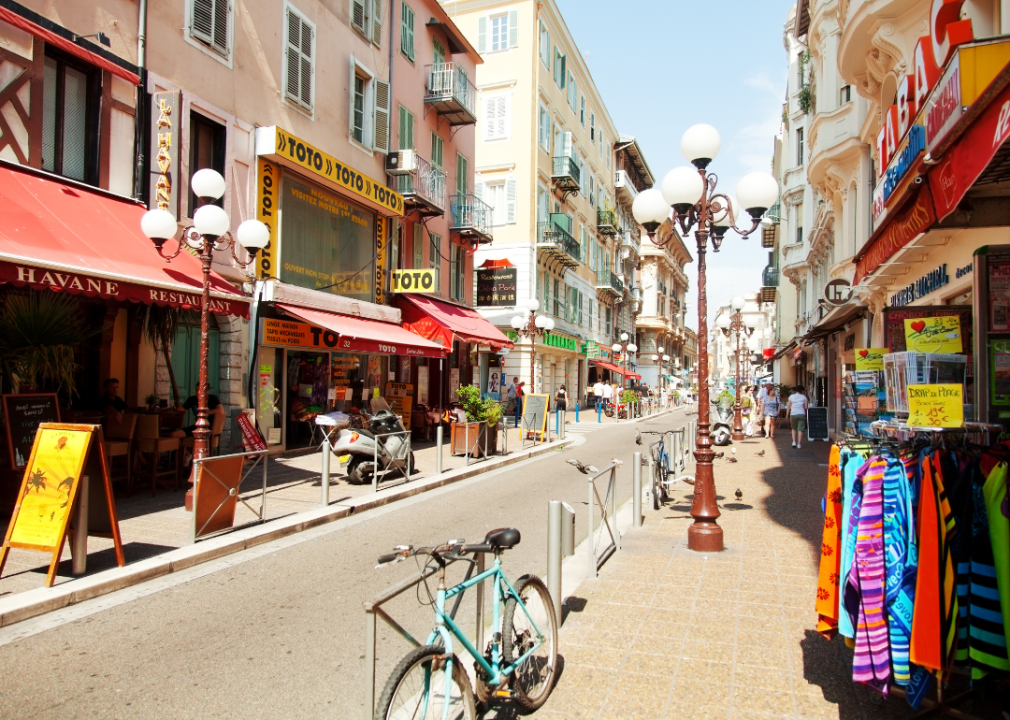
Canva
Titeuf: France
- Name meaning: A Swiss cartoon character and comic series.
- Reason for ban: Comparisons to the comic strip weren’t in the child’s best interests.
Though paying an homage to pop culture in your child’s name wouldn’t cause anyone to blink an eye in the United States, the French take a much stricter view. A court there ruled a boy could not be named after the popular, cowlicked comic strip character.
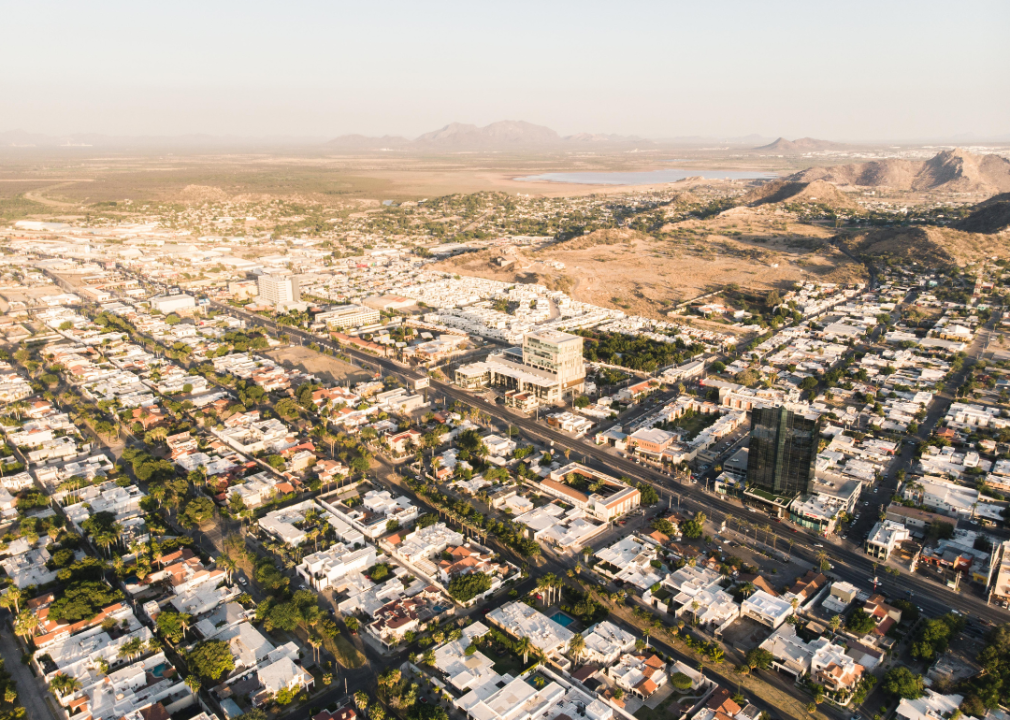
Canva
Usnavy: Sonora, Mexico
- Name meaning: An homage to the United States Navy military branch.
- Reason for ban: It’s lacking in meaning and could be used as pejorative.
Believe it or not, at least one person attempted to name their child “Usnavy” in the past few years, prompting the local government to formally ban the name. One can’t help but wonder if the parents were inspired by the name of the lead character in Lin-Manuel Miranda’s Tony-winning Broadway musical, “In the Heights.”
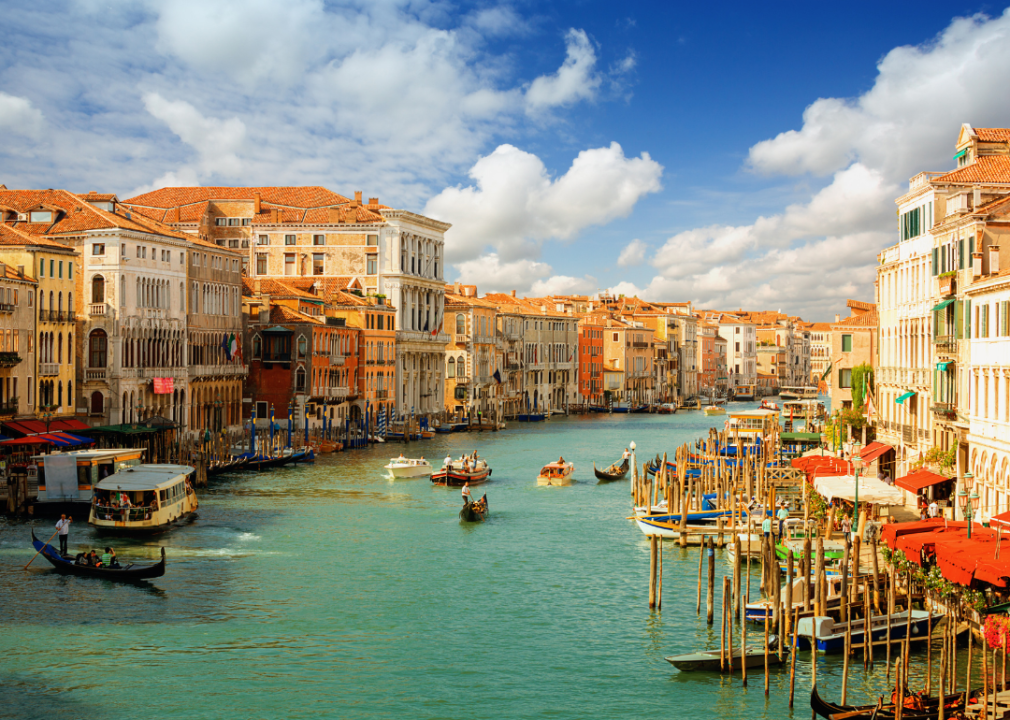
Canva
Venerdi: Italy
- Name meaning: The Italian word for “Friday.”
- Reason for ban: It could cause mockery and bullying.
An Italian court ordered the parents of this little boy to rename him “Gregorio,” saying the original name was associated with “subservience and inferiority” in Daniel Defoe’s novel “Robinson Crusoe.”
You may also like: States with the most multi-generational households
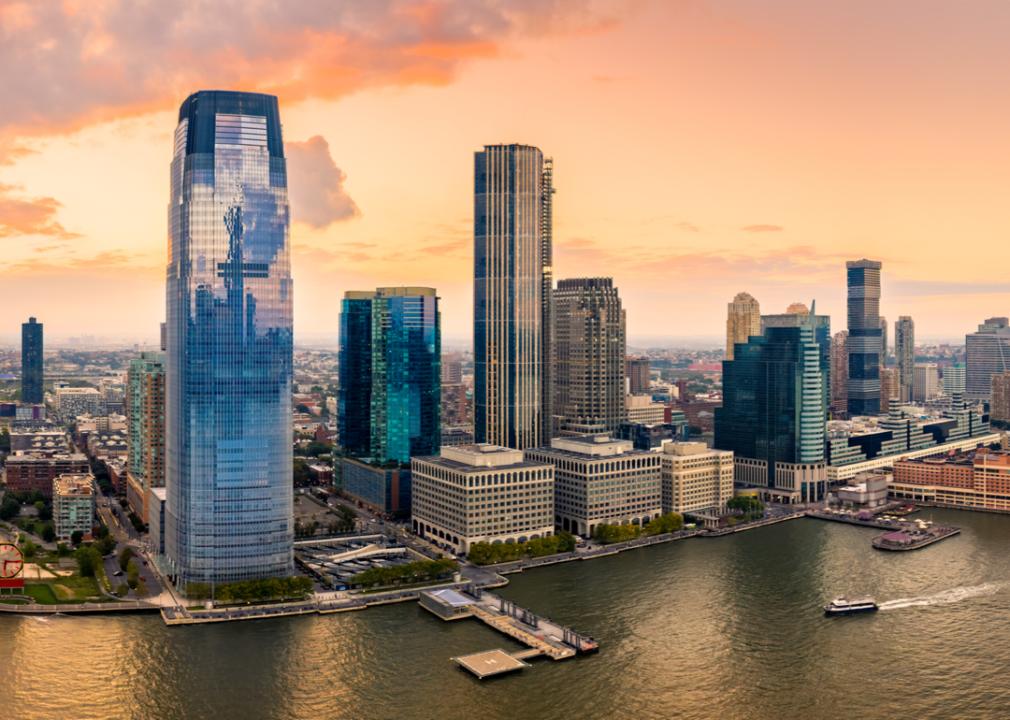
Mihai_Andritoiu // Shutterstock
50: New Jersey, United States
- Name meaning: Five times 10.
- Reason for ban: It’s a number.
Very few states have any laws prohibiting names, but New Jersey does have one. Numbers, symbols, and curse words are all off-limits.
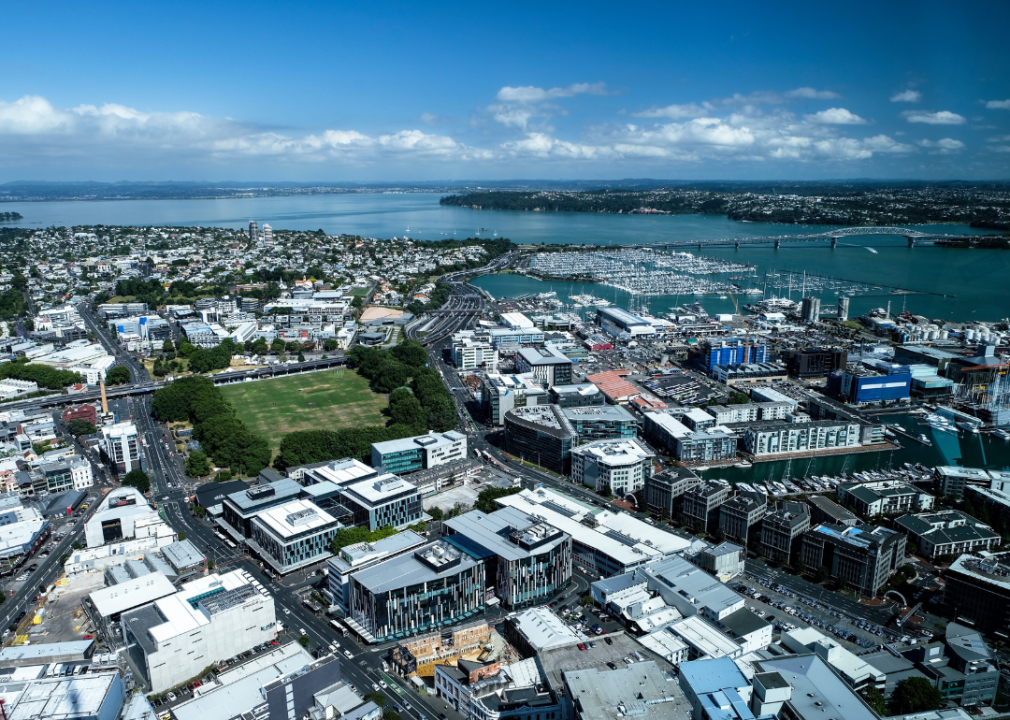
Canva
. : New Zealand
- Name meaning: Full stop.
- Reason for ban: It’s not a name and could cause confusion.
How would you even pronounce this? “Period”? “Full stop”? “Dot”? Needless to say, New Zealand won’t allow you to name your child with punctuation.
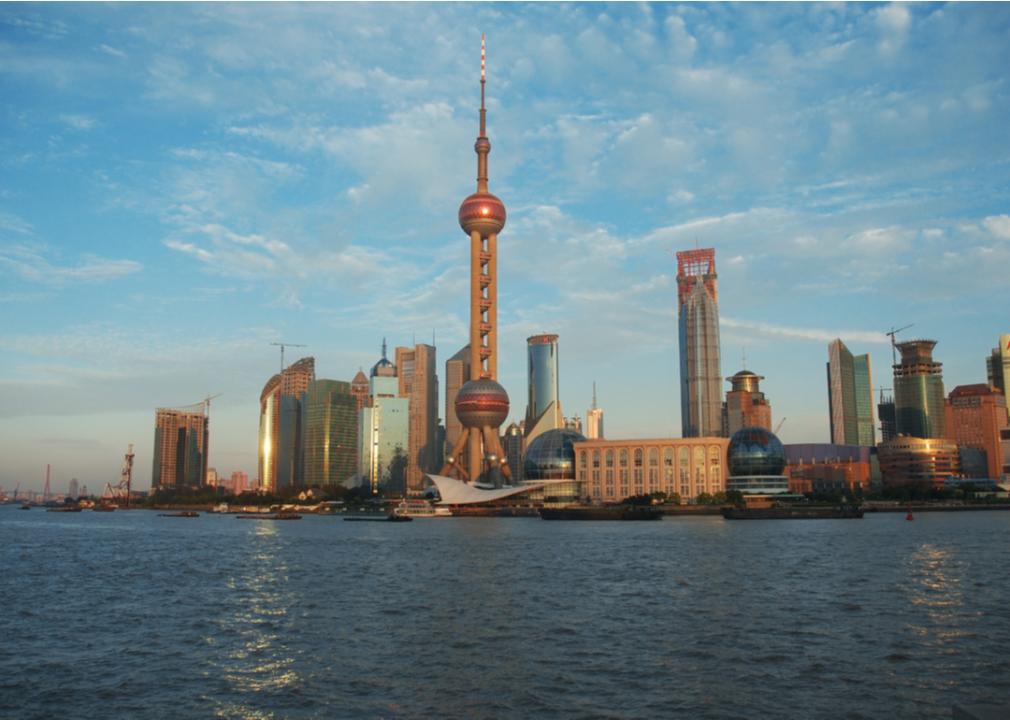
tamir niv // Shutterstock
@: China
- Name meaning: At. In Chinese, it’s pronounced “ai-ta” which sounds similar to “love him” in Chinese.
- Reason for ban: It’s a symbol.
Chinese parents technically can choose any name they’d like for their kids. That said, people are encouraged to choose baby names that can easily be read or scanned by a computer on a Resident Identity Card, the country’s official identification document. Symbols aren’t allowed, and simplified Chinese characters are encouraged over traditional ones.
You may also like: Could you pass the U.S. citizenship test?